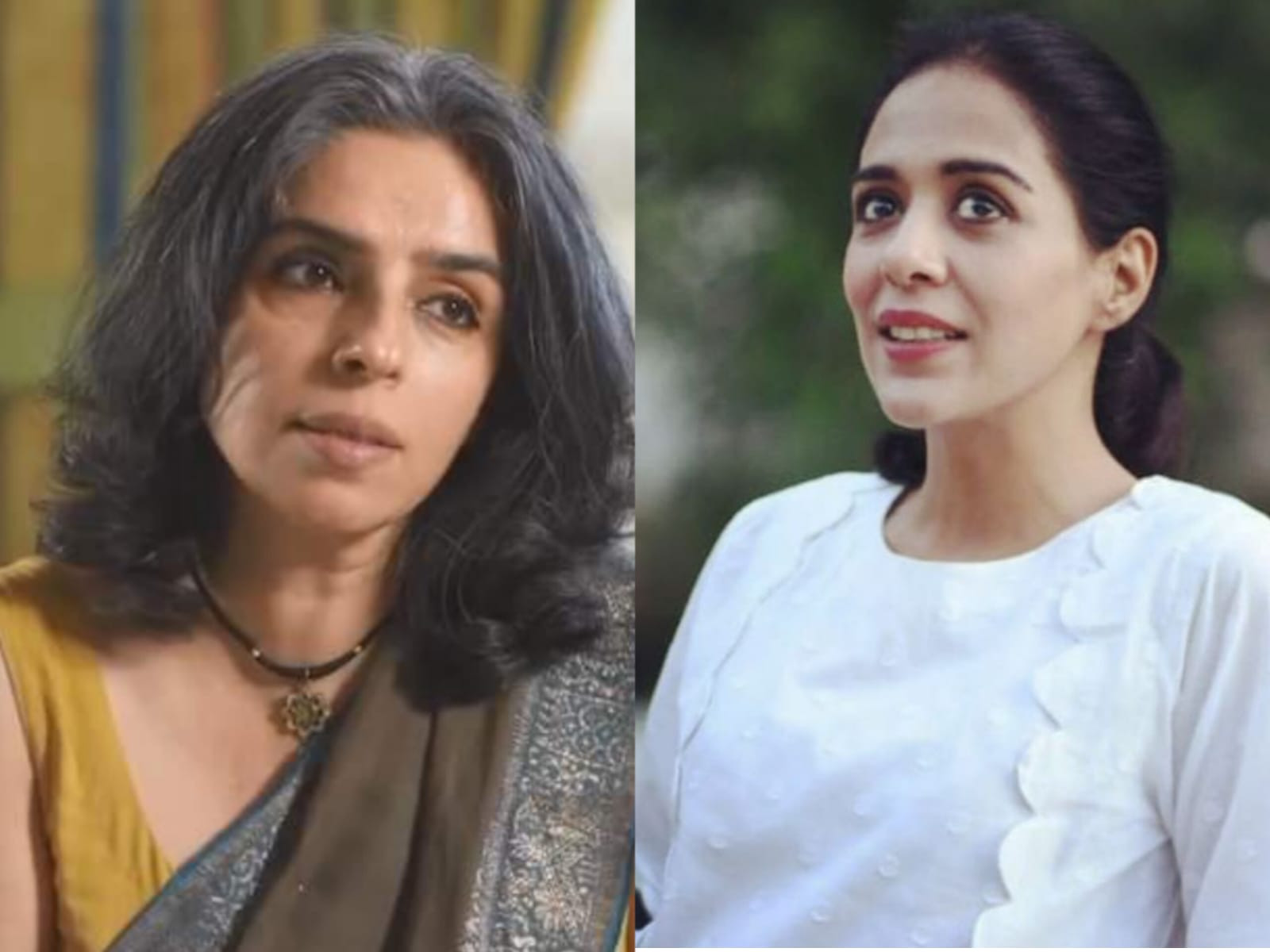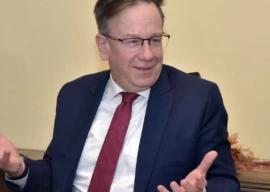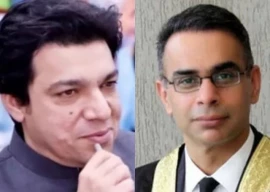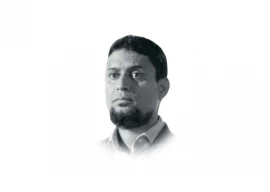
I can't censor myself: Bee Gul's next drama with Yasra Rizvi explores women's sexuality
With multiple projects in pipeline, the playwright feels her upcoming scripts will push boundaries
KARACHI:
It’s 2010 and a young writer brings to life a tale of a husband and wife based in undivided India. The Telefilm became the only one to be nominated for every category at the 2nd Hum Telefilm Awards. Soon after, she surprises the audience with Talkhiyaan, an adaptation of Arundhati Roy’s book The God of Small Things, focusing on the stereotypical mentality of men that live by their ancestral pride and deep-rooted notions of a caste system.
Over a decade later, Bee Gul’s pen and her passion for social change still stand strong, unabashed by the change of regimes, policies and societal regression. The Raqeeb Se writer has several stories in the pipeline – seven to be exact – and she is not stopping! A short film with Rafay Rashdi, two web series with Kashif Nisar for Zee 5 and then there are three plays.
From film to theatre to television, the writer plans to leave her mark in every medium possible and is conscious about the creative team she wants to work with – for she believes there are only a few actors, directors and writers willing to bring change.
In a conversation with The Express Tribune, Gul spoke about her upcoming projects. “Recently, one of my short films went to an international festival. Before that, I’ve done some series for television that’ll go on air now. One is directed by Yasra Rizvi while one of the others has Sajal Aly, Wahaj Ali, Sania Saeed and Hamza Firdaus in the cast.,” She gushed, and heaped praises for the actors. “Hamza, I’m very very impressed with. He’s phenomenal and underrated and Sajal was very passionate and devoted too. I am fond of her intelligence since she has never done a role like this before. Even her looks are different this time.
The pen never stops
“My forte is about dealing with the complexities of human relationships, both men and women. It is about families and extended families and how people take ownership of their mistakes, their desires, their decisions, their identities and more. It's a contemporary take on it all,” she said.
Gul further admitted that, on a subconscious level, her scripts trigger a commentary and it comes from a natural place, a place, where she wants to talk about what she sees around her. “The patriarchy is so long-lived that it has now organically become a part of our lives and societies, not just here but also in the West. There’s awareness but it hasn't been eliminated. How you eat, what you wear, what you do, how you walk, everything is to please women, inside or outside the house, and when the new generation is breaking out of it, then people call them selfish and outlandish.”
“You don’t have to be selfless to be a woman and the burden of sacrifice should now take a leave,” she stated, adding that whenever people criticise her for showing “adult, women-centric and bold content” and ask her whether she's a feminist, she simply asks, “Why are you not one?”
Censorship but at what cost?
Gul shared that “a lot” will be an understatement about how much she writes for the screen but not all of it ends up going to the creative teams. While some scripts are halted due to “logistical issues,” others are scripts too personal to let go. “There are, I would say, three scripts that I haven’t been able to share with anyone. Well, I have given a vague idea about them to a couple of directors and producers but I think my screen is not ready for that. The kind of producer I’d look into is not there and with censorship problems, two of them don’t stand a chance at all,” she sighed.
“I've recently done Working Women with Kashif Nisar and Yasra Rizvi has directed it. When I sent my script to them, Kashif called me and said ‘What are you even expecting with this? We can’t even shoot the first scene. It’s so bold and what you’re talking about won't work with Pakistani audiences,’” she shared. Unfazed, the writer lamented that that’s the director’s problem and not hers.
“I just asked him to let me write and it’s the director’s problem how to shoot it. I can’t self-censor myself and I don't even agree with that. The screenplay has to be smart. While I try to keep it suggestive, the director has to be smart on how to adapt and translate that to screen and control how much to show and in what capacity.” she stated.
“I think Yasra has done a great job though because Working Women is a very bold script in many ways. It breaks stereotypes and highlights topics that are taboo. It deals with the sexuality of women in our society. I have written it very boldly in a way that it came to me.”
Having said that, Gul shared that she does understand her responsibility towards content for a medium as accessible as the TV. “I do respect television. I know what to show and what not to and I take that responsibility but we have to start talking and we need to push boundaries. If a script like Working Women is going on air, then I already take it as a big achievement,” she said.
A progressive wave
About the plethora of dramas announced for the latter half of the year, the writer shared that she’s “looking forward to a progressive wave” on TV and hopes that it creates a trend. “It’s out of the box – something that should have been there years ago – we’re finally talking about new topics. I think it will set some kind of a trend because that’s what happens here. If one channel is making a show on women cricketers then everyone will follow suit.”
The showbiz industry – including Gul – often remark that the screen isn't ready for certain kind of content but that also leaves room for a conversation on what the screen is ready for then. Is it the violence and abuse and a lack of affection or are we missing something here? Gul blames the producers and channel owners – and not the screen for this.
“When I say my screen is not ready, I mean the production houses and channel owners aren't ready.” Not holding back, she asserted, “They’ve been very lazy when it comes to their creativity lately. There’s lazy writing and direction. All of them wish to do a lot of work with minimum effort and time and that's a very greedy approach.”
‘We’ve hit rock bottom’
The Kitni Girhain Baaqi Hain writer stated that we should stop blaming the audience for having access to global content. “It's all because of commercialism and capitalism that hovers over satellite channels. If you think of my generation, we grew up watching local TV and there was meaningful content. How else did I get groomed about these ideas and thoughts that I have? I didn't have access to Netflix growing up. It was local media that taught me and then it regressed when satellite channels brought censorship policies,” she said, adding that she knows of entertainment channels, present and upcoming, that have a policy “to not show feminist or bold content.”



1715933857-0/172ndLede-(1)1715933857-0-270x192.webp)
















COMMENTS
Comments are moderated and generally will be posted if they are on-topic and not abusive.
For more information, please see our Comments FAQ